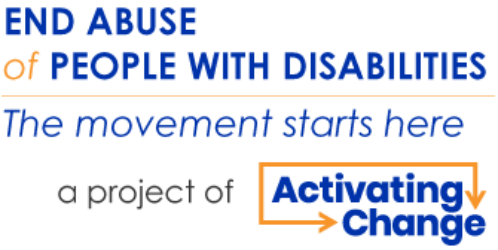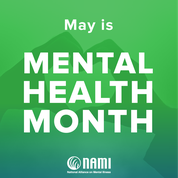Deaf domestic and sexual violence programs are few and far between in comparison to hearing programs. There are only 20 “for Deaf, by Deaf” programs compared to approximately 3,000 programs designed for hearing survivors. What does this mean for Deaf survivors of domestic and sexual violence trying to heal from violence and abuse? Join this panel discussion with advocates from Deaf domestic and sexual violence programs to learn more about the state of Deaf services. These boots-on-ground advocates will share more about their programs, including about the National Deaf Hotline, the barriers Deaf survivors experience when trying to access services from hearing programs, explore the disparities Deaf survivors of color experience, and share why understanding what’s happening, and the resources available to Deaf survivors of domestic and sexual violence, is critical.
REGISTER TODAY

With high rates of victimization and incarceration, people with disabilities have an elevated likelihood of having contact with the criminal legal system in their lifetime. However, due to lack of accessibility, unexamined biases – conscious and unconscious – that exist in the criminal legal system, and an overall fear of system involvement, people with disabilities, and specifically Black, Indigenous people with disabilities, are seeking alternatives to healing and accountability.
One of those alternatives is Transformative Justice. Transformative Justice (TJ) is a framework and approach for responding to violence, harm, and abuse. At its most basic, it seeks to respond to violence without creating more violence and/or engaging in harm reduction to lessen the violence. TJ was created by and for people from marginalized communities for whom calling the police may not be a viable or safe option. This session will further explore the concept of transformative justice and its application to power-based violence in disability and Deaf communities.
Facilitator, Olga Trujillo, from the Center on Victimization and Safety at the Vera Institute of Justice, will be joined in conversation by Najma Johnson and Leah Lakshmi Piepzna-Samarasinha.
PANELISTS
Najma Johnson, DAWN. Najma, who identifies as BlackDeafBlind Trans non-binary, is currently the Executive Director at DAWN, a anti-violence agency providing services for the DeafDisabled, DeafBlind, Deaf, Hard of Hearing and Late-deafened who experienced power-based violence. Najma co-founded Together All in Solidarity (TAS), an umbrella anti-violence community collaboration that functions as a network for marginalized communities within the Deaf Community. Their lifelong work to reduce violence is led by a commitment to transformative justice and actively looking to reduce harm and address systems of oppression.
Leah Lakshmi Piepzna-Samarasinha. Leah (she/they) is a nonbinary femme disabled writer and disability and transformative justice movement worker of Burgher and Tamil Sri Lankan, Irish and Galician Romani ascent. They are the author or co-editor of nine books, including (with Ejeris Dixon) Beyond Survival, Tonguebreaker, Care Work: Dreaming Disability Justice, and Bodymap. A Lambda Award winner who has been shortlisted for the Publishing Triangle five times, they are the 2020 Jean Cordova Award winner “honoring a lifetime of work documenting the complexities of queer experience” and are a 2020 Disability Futures Fellow. Raised in rustbelt central Massachusetts and shaped by T’karonto and Oakland, they currently make home in South Seattle, Duwamish territories. Website is: brownstargirl.org
More information coming soon – please check back.

Survivors with disabilities are experts in their own lived experiences, so they should guide our work to ensure services are accessible and responsive to their needs. To meaningfully work with survivors with disabilities, you need to make sure everything you do is accessible and inclusive.
In this panel discussion, self-advocates from Washington, D.C. and Kansas who are working to address domestic and sexual violence against people with disabilities will share how their work empowers them as advocates and how they have partnered with their team members to play a meaningful leadership role.
In the session, you will learn strategies for decision-making and power-sharing, tips for ensuring cognitive and physical access, and ways to empower survivors with disabilities with the tools and support they need to be equal peers in the work to address domestic and sexual violence.
About the Panelists:
Register for the Webinar
Presenter




